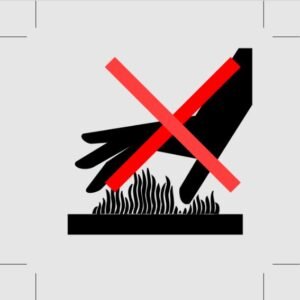What Should Not Be Stored Under Bed?
The space under the bed often seems like a convenient and accessible storage solution for many. However, it’s essential to consider what items are suitable for storage in this space. While some belongings can be safely stored under the bed, there are certain things that should not be kept there. This article explores various reasons why certain items should be kept away from under the bed and suggests alternative storage options.

Safety Concerns
Sharp objects: Storing sharp objects such as knives, scissors, or needles under the bed poses a significant safety risk, especially if there are children or pets in the household.
Chemicals and cleaning agents: Harsh chemicals and cleaning agents should be stored in designated areas away from living spaces to prevent accidental spills or exposure.
Hygiene Issues
Food and beverages: Keeping food or beverages under the bed can attract pests and lead to hygiene problems. It’s best to store food items in the kitchen or pantry.
Dirty laundry: Storing dirty laundry under the bed can create an unclean environment and potentially cause odors. It’s advisable to keep dirty laundry in a designated hamper or laundry basket.
Potential Damage to Items
Delicate fabrics: Storing delicate fabrics like silk, lace, or satin under the bed can result in creasing, wrinkling, or damage due to the weight or movement of the bed.
Electronics: Limited airflow, dust accumulation, and potential accidents involving the bed frame or mattress can easily damage electronic devices under the bed.
Fire Hazards
Storing combustible objects such as petrol, propane or aerosol cans beneath the bed significantly increases the likelihood that an accident involving fire may occur. It is essential to put these things away in locations that are secure and have enough ventilation.
Equipment that run on electricity Placing electrical equipment that include heating components, such heaters or irons, beneath a bed poses a risk of starting a fire, particularly if the bed is made of combustible materials.
Pest Infestations
Bedbugs and pests: Cluttered areas, including under the bed, provide hiding spots for bedbugs, insects, and rodents. Avoid storing items that could attract or harbor pests in this space.
Restricted Airflow
Mattress ventilation: Placing items under the bed can restrict airflow around the mattress, potentially leading to mold or mildew growth.
Dust accumulation: Items stored under the bed can accumulate dust, making cleaning difficult and potentially affecting air quality.
Emotional Impact on Sleep
Cluttered environment: Having a cluttered space under the bed can contribute to a sense of unease and restlessness, potentially impacting the quality of sleep.
Organizational Challenges
Difficulty accessing stored items: Retrieving items stored under the bed can be challenging, especially if there isn’t sufficient clearance or if the bed is heavy.
Lack of organization: The space under the bed often becomes a dumping ground for miscellaneous items, leading to disorganization and difficulty in finding specific belongings.
Alternative Storage Solutions
Storage containers: Use storage containers that specifically designed for under-bed storage.ge. These containers provide organization and protection for various items.
Closet organization: Maximize closet space by using shelves, organizers, or hanging storage solutions to avoid the need for under-bed storage.
Utilize furniture: Invest in furniture pieces with built-in storage, such as ottomans, benches, or beds with drawers, to create functional storage options.
Wall-mounted storage: Install wall-mounted shelves, hooks, or racks to optimize vertical space for storage needs.
Utilize other rooms: You should consider storing items that you do not frequently use in other areas of the house, such as basements, attics, or dedicated storage spaces.
While the space under the bed may seem tempting for storage, it’s crucial to be mindful of what items are suitable for this space. Safety, hygiene, potential damage, fire hazards, and organizational challenges are some key factors to consider. By understanding the limitations and exploring alternative storage solutions, you can maintain a clutter-free, safe, and organized living environment.
FAQs
-
Can I store shoes under the bed?
- Storing shoes under the bed is generally acceptable, as long as they are clean and don’t create a cluttered or unhygienic space. Consider using shoe organizers or storage boxes to keep them organized.
-
Is it safe to store blankets and bedding under the bed?
- Storing blankets and bedding under the bed is usually safe, as long as they are clean and properly protected from dust or pests. Using vacuum-sealed bags can help maintain their cleanliness and prevent damage.
-
Can I store books under the bed?
- Storing books under the bed is not recommended because it can cause damage to the books due to limited airflow, potential pests, or weight from the bed.
-
What should I do with items I rarely use?
- Consider making use of alternative storage alternatives such as basements, attics, or rooms specifically designed for storage for goods that you use only seldom. Your living areas will remain clutter-free and well-organized if you maintain them in this manner.
-
Are there any fire safety precautions I should take?
- To ensure fire safety, avoid storing flammable materials, such as gasoline or aerosol cans, under the bed. Keep electrical appliances with heating elements away from the bed and always follow the manufacturer’s guidelines for safe usage.
